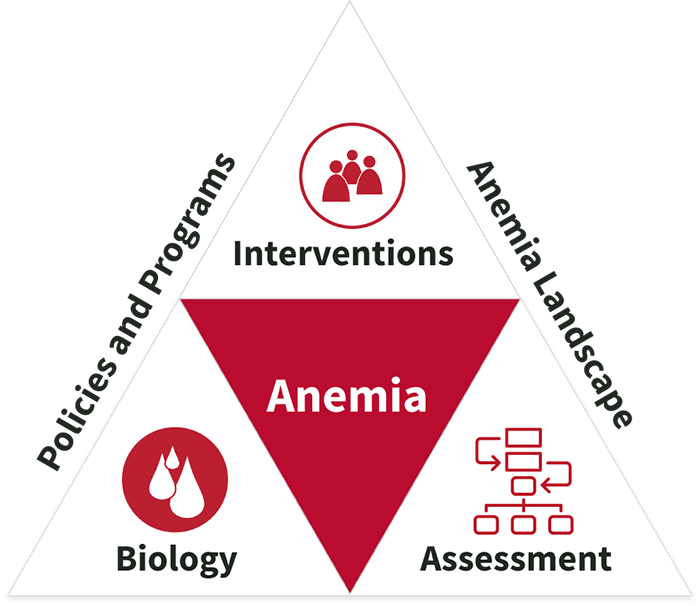Red blood cell production and associated biological systems are complex. In addition to iron, other micronutrients are essential for the function of a healthy blood system and thus, play a role in the prevention of anemia. The body must maintain red blood cell production to replace cells lost through natural removal of aged or damaged cells from circulation or to offset bleeding. The lifespan of normal red blood cells is approximately 120 days; the body requires sufficient amounts of key nutrients to support the replacement of red blood cells at a rate of 1 percent daily.
From a research perspective, we need to further understand and quantify the nature of the interactions of multiple micronutrients (iron, vitamin A, riboflavin, vitamin B12 or folate) to improve nutritional assessment and interventions in the context of anemia. Vitamin A deficiency leads to anemia that is not corrected by administration of iron. This is because vitamin A deficiency causes a reduction in iron absorption or utilization, and only the concurrent administration of vitamin A with iron will alleviate the anemia. In addition, vitamin A deficiency is associated with reduced immune response and predispose deficiency individuals to increased infections, which in turn can induce anemia.
We found 4 resource(s)



